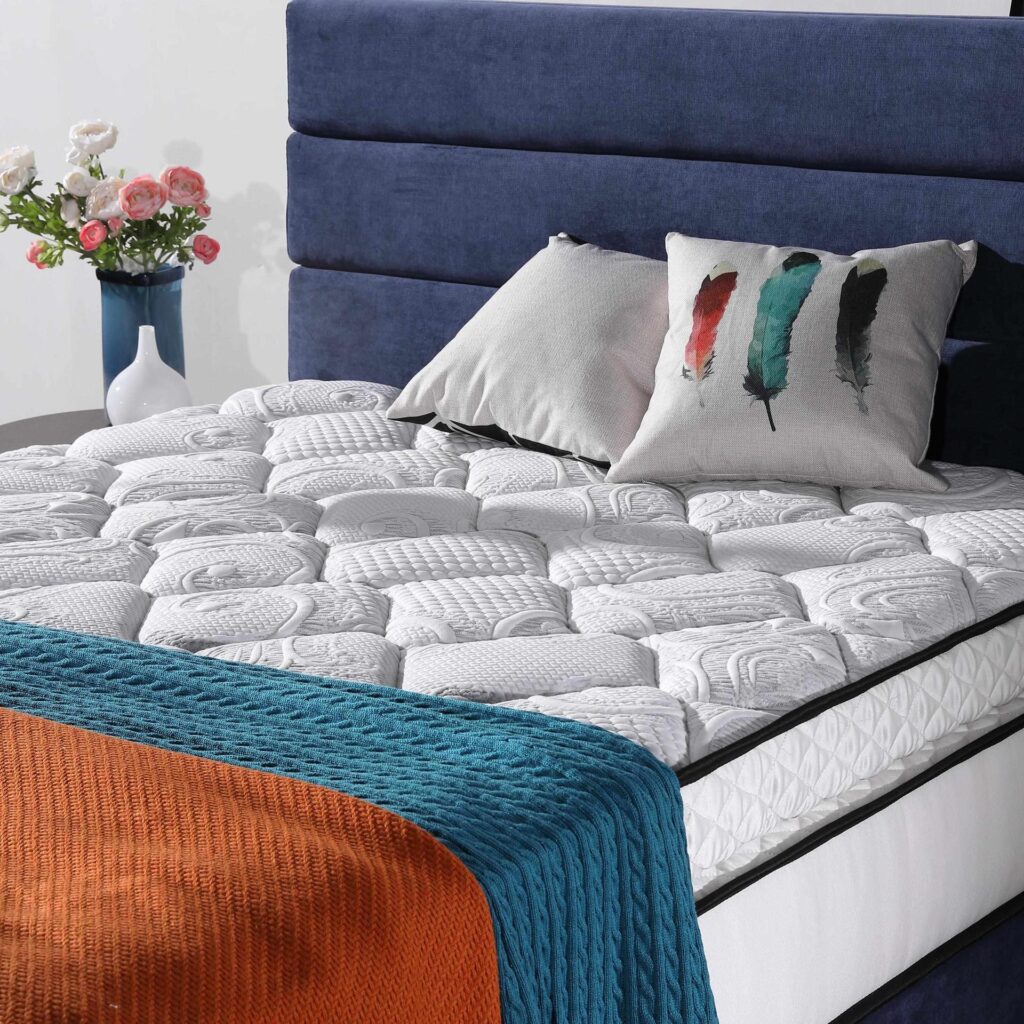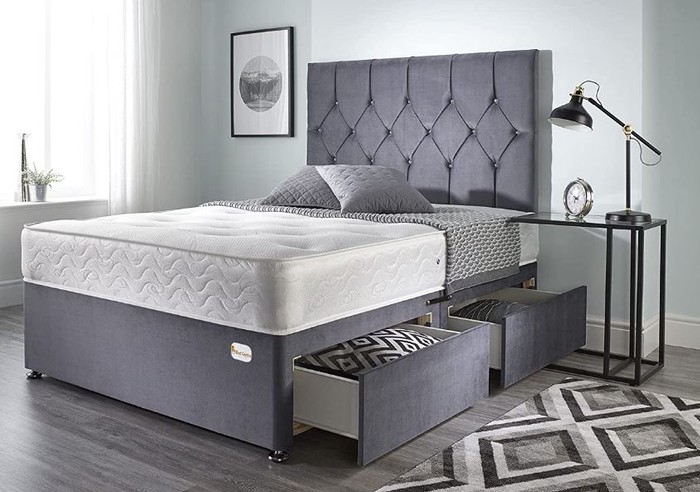Which Bed is Good for Health Hard or Soft?
Table of contents
When it comes to getting a good night’s sleep, choosing the right mattress can make a significant difference in your overall health and well-being. The debate between a hard and soft bed has been ongoing, leaving many people confused about which option to choose. In this article, we’ll delve into the details and help you understand which bed is better for your health: a hard bed or a soft one.
Which Bed is Good for your Health: Hard or Soft?

Restful sleep is a fundamental component of overall well-being. During sleep, the body undergoes essential processes that aid in physical and mental rejuvenation. Proper sleep contributes to cognitive function, emotional balance, immune system support, and the body’s ability to heal and repair. Thus, the quality of your sleep can significantly influence your health and daily life.
The type of bed you sleep on holds significant importance in ensuring a satisfactory sleep experience. Your choice between a hard and a soft bed can profoundly affect your comfort, spinal alignment, and muscle relaxation during sleep.
Benefits of a Hard Bed

Sleeping on a hard bed offers several benefits. Firstly, it provides optimal support for the spine, promoting proper alignment and reducing the risk of back pain. Secondly, a firm surface can help alleviate pressure points, enhancing blood circulation and preventing discomfort. Thirdly, it aids in maintaining a neutral sleeping posture, reducing strain on joints and muscles. Additionally, a hard bed can prevent the body from sinking too deeply, making it easier to change positions during sleep.
Furthermore, this type of bed is generally more durable and has a longer lifespan. Lastly, for people who prefer firmer sleeping surfaces, a hard bed can lead to better sleep quality and overall comfort.
Proper Spinal Alignment
Hard beds provide better support for your spine, promoting proper alignment and reducing the risk of back pain.
Pressure Point Relief
A hard bed distributes your body weight evenly, preventing the concentration of pressure on specific points, which can reduce the likelihood of joint pain.
Improved Posture
Sleeping on a hard surface encourages better posture during sleep, which can translate into improved posture during your waking hours.
Longevity
Hard beds are generally more durable and can withstand the test of time, providing consistent support for years.
However, it’s important to note that a hard bed might not be suitable for everyone. People with certain health conditions or personal preferences might find a soft bed more comfortable.
Soft Bed

Sleeping on a soft bed offers distinct advantages. Firstly, it conforms to the body’s contours, cushioning pressure points and relieving pain. Secondly, it promotes a sense of cosiness and comfort, encouraging relaxation and better sleep. Thirdly, a soft bed can be particularly beneficial for individuals with certain medical conditions, such as arthritis or fibromyalgia, as it reduces impact on sensitive areas.
Additionally, it provides a sense of luxury and opulence, enhancing the overall sleep experience. Furthermore, the plush surface can be soothing for those who prefer a gentler and more enveloping feel while sleeping. Lastly, a soft bed can be advantageous for individuals who change positions frequently during sleep, as it allows for easy adjustment and movement.
Soft beds, also known as plush or pillow-top mattresses, offer their own set of advantages:
Pressure Relief
Soft beds contour to your body’s natural shape, relieving pressure on joints and allowing for a more comfortable sleep, especially for side sleepers.
Cushioning Effect
The plush surface of a soft bed can feel luxurious and cozy, providing a sense of comfort and relaxation.
Reduced Motion Transfer
Soft beds are better at absorbing motion, making them a suitable choice for couples who don’t want to be disturbed by each other’s movements during the night.
Personal Preference
Some individuals simply find the softness of these beds more inviting and conducive to sleep.
However, it’s worth considering that soft beds might not offer the same level of spinal support as harder options.
Ideal Choice for You
The question of whether a hard or soft bed is better for your health doesn’t have a one-size-fits-all answer. The ideal choice depends on various factors:
Sleeping Position
Your preferred sleeping position can influence the type of bed that provides the best support. Back sleepers might benefit from a firmer mattress, while side sleepers might prefer a softer one.
Health Conditions
If you have specific health conditions such as lower back pain or arthritis, consulting a medical professional can help you determine which type of bed aligns with your needs.
Personal Comfort
Ultimately, your comfort is paramount. If you find one type of bed more comfortable than the other, it’s likely the better choice for you.
Trial Periods
Many mattress retailers offer trial periods, allowing you to test a bed’s comfort and support before committing.
Conclusion
In the quest for a restful sleep and optimal health, the choice between a hard and soft bed is a significant one. Both options offer unique benefits, and the right choice for you depends on your individual needs and preferences. Prioritise proper spinal alignment, personal comfort, and any specific health considerations when making your decision. By doing so, you’ll be well on your way to enjoying rejuvenating sleep and waking up feeling refreshed and ready to conquer each.
Read more : What Is The Cost Of A Good Mattress In The UK
Frequently Asked Questions (FAQs)
Yes, memory foam mattresses are generally categorised as soft beds due to their ability to contour to the body’s shape and provide a plush feel.
Yes, a mattress that is excessively firm might not provide adequate comfort and support, potentially leading to discomfort and disrupted sleep.
The right mattress should provide a balance of comfort and support based on your sleeping position and personal preferences. Many mattress retailers offer sleep trials to help you make an informed decision.






